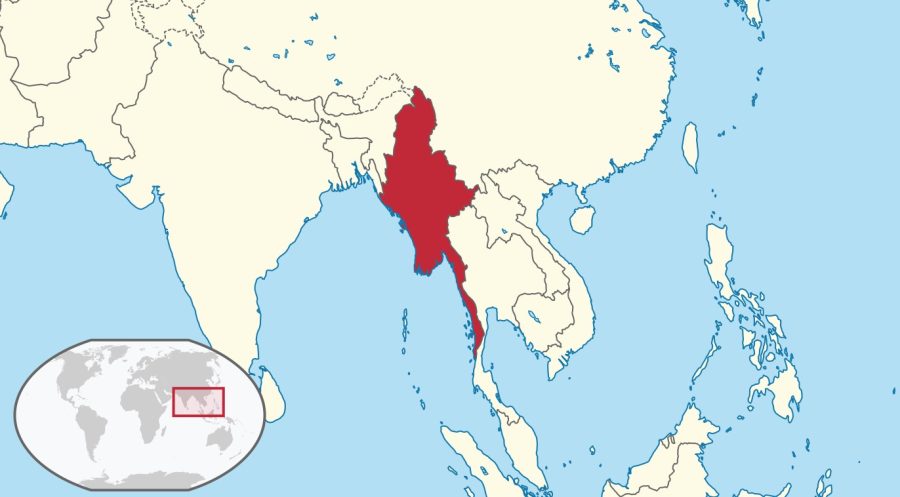Fatal attack on Myanmar school leaves 7 children dead
Myanmar is situated north-east of India and directly north-west of Thailand, where much of the news coverage on the situation comes from.
According to the Associated Press, on Sept. 7, an airstrike on a school in Myanmar’s Sagaing region killed 13 people, including seven children. As reported by CNN, the Myanmar military junta opened fire on the facility under the pretense that it was hiding members of the rebel groups known as the People’s Defense Forces. The attack took place in the Let Yet Kone village in north-central Myanmar.
A witness told the Associated Press that she saw children with missing limbs, and bullet wounds on various parts of their bodies, walking out of the building. The dead bodies were taken by the military to be cremated, with the report by the government stating that the monastery was housing members of the People’s Defense Forces. They accused the rebel groups of using children as human shields and didn’t mention the number of fatalities.
On Feb. 1, 2021, the military-directed Union Solidarity and Development Party, or USDP, overthrew the democratically elected members of the National League for Democracy (NLD). According to the Editors of Encyclopaedia Britannica, the military-selected vice president, Myint Swe, was appointed as acting president. Swe invoked clauses 417 and 418 in the constitution that handed over the judicial, executive, and legislative power to the military and to Senior General Min as the commander-in-chief of armed forces. Following the coup, the nation erupted in non-violent protests by civilians, which were quickly and fatally shut down.
The United Nations Human Rights Office of the High Commissioner reported that the UN has documented over 140 cases of the torture of children since the 2021 coup, claiming that the military junta has targeted children and schools.
According to UN News, both religious and ethnic minorities have been targeted by the USDP leadership. Those from the Chin state of Myanmar have been systematically displaced, both now and during past military dictatorships.
Rohingya Muslims and Chin Christians have also faced persecution and human rights violations throughout the 21st century, with current USDP leadership continuing this trend. According to the USC Shoah Foundation, the August 2017 military campaign against Rohingya Muslims killed at least 6,700, displacing hundreds of thousands more.
Early College student Rachel Kim’s mother is from Myanmar and belongs to one of the many ethnic groups that make up the mountainous Chin State. Although she herself does not live in Myanmar, she still has a family that continues to face the violence and uncertainty of the military’s regime.
“They see everyone else, including myself, as… nothing,” Kim said. “We’re not human, because we don’t fit into their idea of that one religion, or language, or ethnic group.”
The UN and various international powers have spoken out against the violence, especially against children.
In a recent video from the UN Human Rights Council, Special Rapporteur Thomas Andrews, addressing the Council three days after the shooting, stated that “unless UN member states change course in the way that they correctly respond to this crisis, the people of Myanmar will suffer even further.”
Guilford students and faculty expressed their opinions about what should be done to respond to the crisis.
“Canada, the EU, the UK, and the US imposed sanctions against the military officials and members of the junta, and also companies controlled and owned by junta; however, did not impose any sanctions on oil and gas,” said Zulfiya Tursunova, Associate Professor of Peace and Conflict Studies at Guilford. “Given the spike in the price of energy resources in Europe and globally and the role of Russia in controlling the energy resources and the war with Ukraine, better strategic economic development intersecting with peace and justice should be at the core of transitional justice.”
Many in Myanmar, and their families abroad, see the reason for the UN to aid the country as well, both physically and economically.
“You have to realize that Myanmar is a third-world country… and it needs help from the UN,” said Kim. “The people need help, and they don’t have the resources to fight back.”










